From the rice fields of Isaan to fame as a filmmaker, the long struggle of a country girl who overcame cancer to put her family and career back on track
By Robin Westley Martin
The year 2020 was the year that the scourge of Covid began to affect all our lives, to a greater or lesser degree. I myself lost a childhood friend, and it was a major contributing factor in the closure of my café business in Bangkok.
The pandemic, then, created difficulties for everyone, but for some there was worse yet to come. One such was Naruemon (Ploy) Chaingam, who was diagnosed with an aggressive cancer at the same time as the Covid pandemic was gathering steam around the globe. This is her story – a story of courage and determination.
The Northeast of Thailand, known as Isaan, is the poorest part of Thailand, and its economy is largely agriculture-based. This is where Ploy was born, in Sisaket, a province bordering Cambodia. Ploy was an observant and inquisitive child who took a deep interest in what was going on around her. From an early age she knew that a life in the rice fields was not to be her destiny.
Ploy is now a confident 40-year-old woman who has two teenage boys, aged fourteen and fifteen, and she has juxtaposed being a caring single mom (since 2010, when her children were three and four years old) with a successful career in journalism and documentary film-making. She learnt to speak English by herself (her spoken English is better than some Thai politicians I have interviewed) and Ploy is well-known - and respected - by the foreign media community in Thailand.
So let’s find out a little more about what makes Ploy tick:
Robin: When did you first become interested in journalism and film work, and what was it about making documentaries that drew your attention?
Ploy: Growing up in a poor farming village in Isaan you see the real Thailand, the grassroots. It felt a long way from the Bangkok I saw on TV, let alone the rest of the world. But what things I was able to find out (long before smartphones and Google search) gave me a hunger to learn more about my country and further afield.
The year 2020 was the year that the scourge of Covid began to affect all our lives, to a greater or lesser degree. I myself lost a childhood friend, and it was a major contributing factor in the closure of my café business in Bangkok.
The pandemic, then, created difficulties for everyone, but for some there was worse yet to come. One such was Naruemon (Ploy) Chaingam, who was diagnosed with an aggressive cancer at the same time as the Covid pandemic was gathering steam around the globe. This is her story – a story of courage and determination.
The Northeast of Thailand, known as Isaan, is the poorest part of Thailand, and its economy is largely agriculture-based. This is where Ploy was born, in Sisaket, a province bordering Cambodia. Ploy was an observant and inquisitive child who took a deep interest in what was going on around her. From an early age she knew that a life in the rice fields was not to be her destiny.
Ploy is now a confident 40-year-old woman who has two teenage boys, aged fourteen and fifteen, and she has juxtaposed being a caring single mom (since 2010, when her children were three and four years old) with a successful career in journalism and documentary film-making. She learnt to speak English by herself (her spoken English is better than some Thai politicians I have interviewed) and Ploy is well-known - and respected - by the foreign media community in Thailand.
So let’s find out a little more about what makes Ploy tick:
Robin: When did you first become interested in journalism and film work, and what was it about making documentaries that drew your attention?
Ploy: Growing up in a poor farming village in Isaan you see the real Thailand, the grassroots. It felt a long way from the Bangkok I saw on TV, let alone the rest of the world. But what things I was able to find out (long before smartphones and Google search) gave me a hunger to learn more about my country and further afield.
I guess my passion for telling stories comes from an early understanding of the challenges; the against-the-odds successes, and the complex social issues affecting people from the area I was raised up in. Poor education, limited work options, and moms and dads leaving their kids behind to be looked after by their grandparents, as they left the villages to become migrant workers. I've been fortunate to explore some of these themes of inequality in my pieces covering Thailand, Laos, and the wider Southeast Asian region.
Since a very young age writing was a friend to me, that I embraced. I won high school competitions and I dreamt of becoming a TV news anchor. I would later go on to study journalism and mass communication at university.
I was gradually pulled into documentary. Maybe I have always had some of those investigative skills since I was a kid: the patience to observe, feel and tell stories. I was 23 when I got my fist gig writing a TV script just after leaving university. It's been a long, hard road since then but I feel really lucky to have met some extraordinary people while doing my work, and I got to hear their stories first-hand. But I never made it as a TV anchor!
Robin: Were, or are, any of your family journalists or filmmakers?
Ploy: My brother has a small production house and my sister-in-law was a Thai TV reporter. We are kind of a media family and it's something I hope my kids might continue with one day. Through the friends I have made, and my family members, I have been in a very supportive environment to nurture my work in media and journalism. There's a great network in Bangkok of Thais and expats with high-level skills and an openness to absorb new ideas and develop fresh ways to put your story across. Bangkok really should be the heart of the media industry in Southeast Asia, there are so many skilled people here.
My brother is a production machine – he never stops! I've learned a lot from his work on TVCs, television programmes, documentaries and music videos. I think that a mishmash of all this has fed into me, and created my particular style
Robin: Which university did you attend, and what inspired you while you were there?
Ploy: I went to Thammasat University. Thammasat has long been the home of Thailand's radical thinkers, fighting for democracy and human rights as well as freedom of speech. From an Isaan rice-farming community to a Bangkok university wasn't as common back when I was a teenager, and I was so proud to be there. Over time I learnt about the struggle to report unbiased critical stories in Thailand. It broke my faith in journalism a little, and my idealism about it. But it also made me determined to create a space for myself as an independent filmmaker for an international market … not instead of, but as well as the mainstream media in my own country.
Robin: When you started your career was there any documentary film maker who had impressed you, who made you want to follow in their footsteps.
Ploy: I've always looked to my Southeast Asian colleagues for inspiration, such as Pailin Wedel from Thailand, Chan Lida from Cambodia, Banuk Amante and Martika Ramirez Escobar from The Philippines, and especially my old friend Anyxay from Laos. I lived in Laos for nine years and his film 'At the Horizon’ affected me deeply.
After seeing that piece I became enthused by the possibilities and opportunities that filmmaking might be able to give me.
I (we) work in a region where we risk jail or intimidation by the law for simply trying to show the truth of an issue. We also work with little funding or resources … so getting your documentary finished, and out there, is always extra special. Things are changing slowly as Southeast Asia becomes a large market in its own right, with stories that travel well outside the region. I think the new streaming channels will be able to help more voices from our area gain international exposure – especially minority groups, across the board, and women.
On a personal note, I have to give a mention to Yves Jeanneau who sadly died in 2019, aged only 69. He was a French documentary maker and producer who established (30 years ago) the ‘Sunny Side of the Doc’ industry festival, and brought Asian Side of the Doc – and also the world’s documentary market – to Bangkok in 2016.
Yves taught me the value and technique of putting a camera onto stories in the hope of making small but important changes to our world. He gave me the confidence that I could compete on an even footing on the international scene, against more experienced people with access to better resources. I hope he would be proud of my progress.
Robin: How do you decide upon projects you wish to go forward with?
Ploy: From idea to commission to finished film making a documentary is a long process. It's not easy and needs a lot of determination, research, working out which permits will be needed, etc … and luck, too!
I try to decide upon projects that will help me grow as a filmmaker. Projects that will challenge me to meet little-known people and tell a story that isn't easy to reach or hear. For example, I took on an investigation into the world's most wanted passport forger, and found a way to interview him in a Thai jail. Against the masses of bureaucracy, and in a country that does not look favourably upon its journalists. That taught me that nothing is impossible.
Since a very young age writing was a friend to me, that I embraced. I won high school competitions and I dreamt of becoming a TV news anchor. I would later go on to study journalism and mass communication at university.
I was gradually pulled into documentary. Maybe I have always had some of those investigative skills since I was a kid: the patience to observe, feel and tell stories. I was 23 when I got my fist gig writing a TV script just after leaving university. It's been a long, hard road since then but I feel really lucky to have met some extraordinary people while doing my work, and I got to hear their stories first-hand. But I never made it as a TV anchor!
Robin: Were, or are, any of your family journalists or filmmakers?
Ploy: My brother has a small production house and my sister-in-law was a Thai TV reporter. We are kind of a media family and it's something I hope my kids might continue with one day. Through the friends I have made, and my family members, I have been in a very supportive environment to nurture my work in media and journalism. There's a great network in Bangkok of Thais and expats with high-level skills and an openness to absorb new ideas and develop fresh ways to put your story across. Bangkok really should be the heart of the media industry in Southeast Asia, there are so many skilled people here.
My brother is a production machine – he never stops! I've learned a lot from his work on TVCs, television programmes, documentaries and music videos. I think that a mishmash of all this has fed into me, and created my particular style
Robin: Which university did you attend, and what inspired you while you were there?
Ploy: I went to Thammasat University. Thammasat has long been the home of Thailand's radical thinkers, fighting for democracy and human rights as well as freedom of speech. From an Isaan rice-farming community to a Bangkok university wasn't as common back when I was a teenager, and I was so proud to be there. Over time I learnt about the struggle to report unbiased critical stories in Thailand. It broke my faith in journalism a little, and my idealism about it. But it also made me determined to create a space for myself as an independent filmmaker for an international market … not instead of, but as well as the mainstream media in my own country.
Robin: When you started your career was there any documentary film maker who had impressed you, who made you want to follow in their footsteps.
Ploy: I've always looked to my Southeast Asian colleagues for inspiration, such as Pailin Wedel from Thailand, Chan Lida from Cambodia, Banuk Amante and Martika Ramirez Escobar from The Philippines, and especially my old friend Anyxay from Laos. I lived in Laos for nine years and his film 'At the Horizon’ affected me deeply.
After seeing that piece I became enthused by the possibilities and opportunities that filmmaking might be able to give me.
I (we) work in a region where we risk jail or intimidation by the law for simply trying to show the truth of an issue. We also work with little funding or resources … so getting your documentary finished, and out there, is always extra special. Things are changing slowly as Southeast Asia becomes a large market in its own right, with stories that travel well outside the region. I think the new streaming channels will be able to help more voices from our area gain international exposure – especially minority groups, across the board, and women.
On a personal note, I have to give a mention to Yves Jeanneau who sadly died in 2019, aged only 69. He was a French documentary maker and producer who established (30 years ago) the ‘Sunny Side of the Doc’ industry festival, and brought Asian Side of the Doc – and also the world’s documentary market – to Bangkok in 2016.
Yves taught me the value and technique of putting a camera onto stories in the hope of making small but important changes to our world. He gave me the confidence that I could compete on an even footing on the international scene, against more experienced people with access to better resources. I hope he would be proud of my progress.
Robin: How do you decide upon projects you wish to go forward with?
Ploy: From idea to commission to finished film making a documentary is a long process. It's not easy and needs a lot of determination, research, working out which permits will be needed, etc … and luck, too!
I try to decide upon projects that will help me grow as a filmmaker. Projects that will challenge me to meet little-known people and tell a story that isn't easy to reach or hear. For example, I took on an investigation into the world's most wanted passport forger, and found a way to interview him in a Thai jail. Against the masses of bureaucracy, and in a country that does not look favourably upon its journalists. That taught me that nothing is impossible.
| I'm always trying to learn from senior people in my industry and take on bigger challenges. It doesn’t necessarily mean bigger budgets, because sometimes the challenge is in the format, the access, or producing with a large crew, with members from different countries. You learn from each film and I don't think that ever stops. Robin: When your tumour diagnosis was made how did you initially feel … apart from the shock, did it make you determined to do all you can to continue as best you can? Ploy: For me, the moment the diagnosis was made it felt like a death sentence. Cancer at 40 with two kids still dependent on their mom … all during the Covid-19 pandemic when work has dried up … it felt like the end. Suddenly you have these massive challenges, both physical and mental. You have to find a way to survive the initial treatment, and chemo hit me hard … believe me, losing my prized long hair wasn’t at all nice. And then having to navigate through the clogged waterways of the Thai hospital system, which burns money so quickly. All the while struggling to get a new diagnosis after numerous nights in hospitals, and the endless biopsies and scans. |
I started off in private hospitals, but that soon ate up all my savings, and I transferred to a government hospital for treatment. And never let it be said that the care there cannot compare with that in a private facility, because it does! The doctors and nurses in Ramathibodi were caring, knowledgeable and skillful.
I used my research skills, and educated myself on my condition (aggressive large b-cell non-Hodgkin’s lymphoma) and prepared my body and mind to go through the tough times that would be coming. All of which would have been impossible without the help of my friends, my family … and my dogs!
I used my research skills, and educated myself on my condition (aggressive large b-cell non-Hodgkin’s lymphoma) and prepared my body and mind to go through the tough times that would be coming. All of which would have been impossible without the help of my friends, my family … and my dogs!
| Robin: What have the doctors said about your prognosis? Ploy: For now I am very lucky, the chemo, which lasted five or six months, seems to have worked and I am right now 'cancer free'. But there is a long way to go before I can say I am cured. It is still a life of medical appointments, worries over the latest scans and how to pay for whatever treatment I might need next. But I do yoga and meditation to help me remember to treasure what I have. Robin: How much of a struggle was it to continue working whilst still being treated, what project or projects were you working on? Ploy: During my time of indisposition I was lucky to find a commission to make a documentary about human trafficking in the fishing industry for Vice / HBO. The good days were being out filming in fields and on boats and learning about the terrible abuses and the amazing people fighting them. I didn’t even know if I would last until the end of the filming, but I thought that I would be leaving something good behind me. The bad days were just after a session of chemo with nausea attacks mid-shoot and tremendous exhaustion. But all in all my work allowed me to shift my focus from self-pity towards my passion. Robin: How did you get through this harrowing time, what forced you to carry on … your children, your friends, your desire to create more work? Ploy: Through my research I had learnt that my Stage 2 lymphoma was actually the good news … it could have been a lot worse. It could be cured with hard work from myself and my doctors. |
My boys are my purpose. They are 14 and 15 and although life is not always a bed of roses with two pubescent boys full of raging hormones, they still very much need their mom! I have learned that people are incredibly kind. I am also lucky I have some work – I'm currently doing a documentary on my experiences of cancer as a woman in Thailand – and I have faith that I have been given a second chance at a long and productive life.
Robin: Now you have come out of the other side how do you feel … stronger, grateful, happy, exhausted …
Ploy: I am extraordinarily grateful that I have been looked after by many good hands … the doctors, financial support from friends and family, without which I wouldn’t be here talking to you now. But the whole time I was focused on fighting my battle I thought there should have been some mental health support provided by the hospitals. In Thailand there just isn’t anything like that. It's a real support and information gap at the most difficult and important time in a person’s life. It is fundamentally only a medical process and you go through it alone. When I finished my treatment I was exhausted and emotionally drained. I needed a counselor, I needed information on how to emotionally recover from the shock, the post-traumatic stress,
and how to live my life again. There is very little of this form of assistance in my country and that's something I want to help change … by including these issues in my documentary.
Robin: Apart from overcoming your cancer, and having children, what is your outstanding achievement in your life … which piece of work that you have produced are you most proud of?
Ploy: I will always be proud of the passport forger story. To reach an Iranian criminal with links to a global organised crime group, in a Thai jail, was the hardest access I have ever faced. It took months of negotiations and research to get there and it was a very complex story. Channel News Asia commissioned it and it was syndicated to Al-Jazeera and other channels. I'm also really happy with my latest work for HBO / Vice on ‘Modern Day Slavery in the Thai Fishing Industry’.
Robin: Now that you are again on the upward spiral what projects do you have planned for the future?
Ploy: This year I have been invited to sit on juries for industry events like the International Bangkok Documentary Festival and One World Media Awards. And for the first time in my career I am making a personal documentary, about my journey through the cancer treatment, from the initial diagnosis all the way through it until now. With universal truths on womanhood, trauma, love and health.
We're going to experiment with formats to tell a textured story that I hope will be part of a conversation in Thailand (and beyond) on how we respond to a life-changing illness. I have a story to tell, and I want to use my skills as a documentary filmmaker to tell it to the world. It won’t be an easy watch for myself, or the viewers … but I hope that it will give the people who see it just that … hope.
Robin: Now you have come out of the other side how do you feel … stronger, grateful, happy, exhausted …
Ploy: I am extraordinarily grateful that I have been looked after by many good hands … the doctors, financial support from friends and family, without which I wouldn’t be here talking to you now. But the whole time I was focused on fighting my battle I thought there should have been some mental health support provided by the hospitals. In Thailand there just isn’t anything like that. It's a real support and information gap at the most difficult and important time in a person’s life. It is fundamentally only a medical process and you go through it alone. When I finished my treatment I was exhausted and emotionally drained. I needed a counselor, I needed information on how to emotionally recover from the shock, the post-traumatic stress,
and how to live my life again. There is very little of this form of assistance in my country and that's something I want to help change … by including these issues in my documentary.
Robin: Apart from overcoming your cancer, and having children, what is your outstanding achievement in your life … which piece of work that you have produced are you most proud of?
Ploy: I will always be proud of the passport forger story. To reach an Iranian criminal with links to a global organised crime group, in a Thai jail, was the hardest access I have ever faced. It took months of negotiations and research to get there and it was a very complex story. Channel News Asia commissioned it and it was syndicated to Al-Jazeera and other channels. I'm also really happy with my latest work for HBO / Vice on ‘Modern Day Slavery in the Thai Fishing Industry’.
Robin: Now that you are again on the upward spiral what projects do you have planned for the future?
Ploy: This year I have been invited to sit on juries for industry events like the International Bangkok Documentary Festival and One World Media Awards. And for the first time in my career I am making a personal documentary, about my journey through the cancer treatment, from the initial diagnosis all the way through it until now. With universal truths on womanhood, trauma, love and health.
We're going to experiment with formats to tell a textured story that I hope will be part of a conversation in Thailand (and beyond) on how we respond to a life-changing illness. I have a story to tell, and I want to use my skills as a documentary filmmaker to tell it to the world. It won’t be an easy watch for myself, or the viewers … but I hope that it will give the people who see it just that … hope.

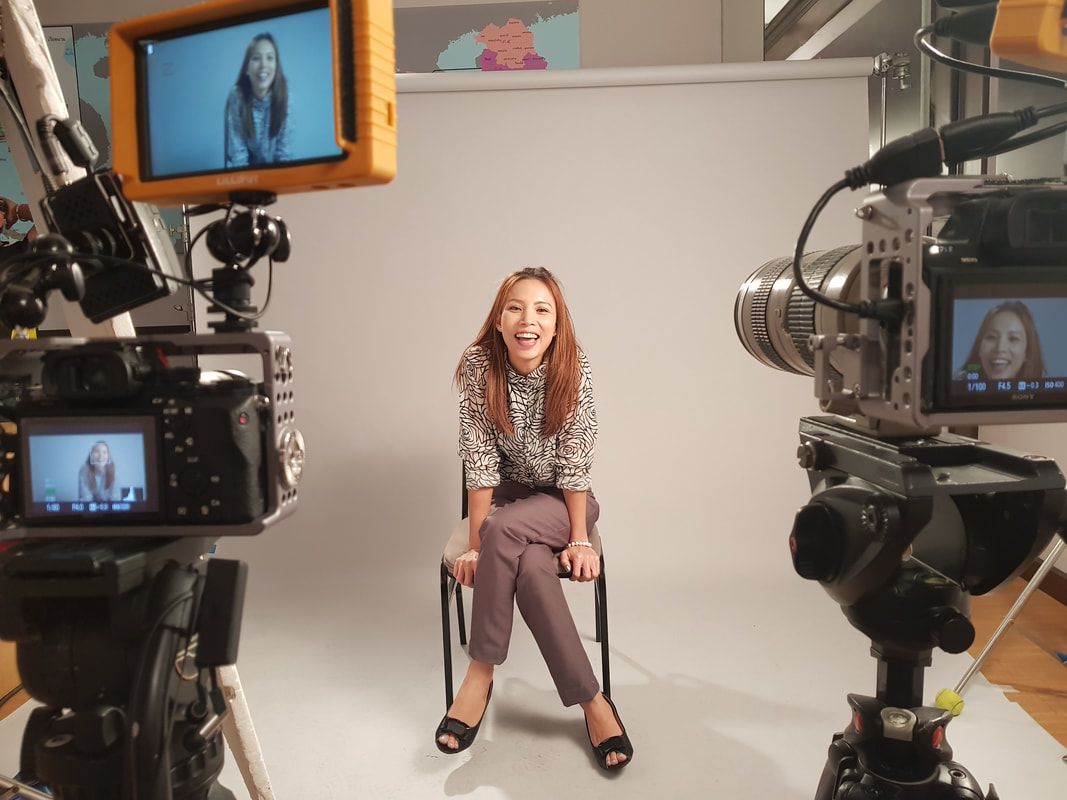
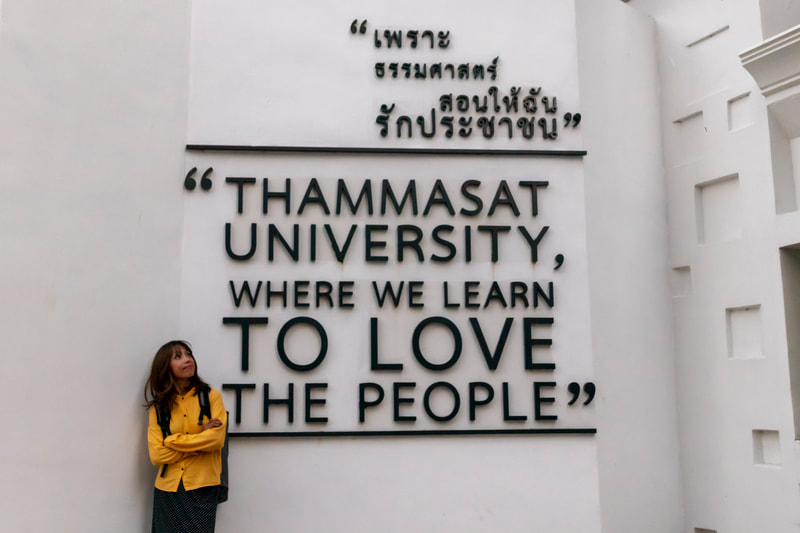
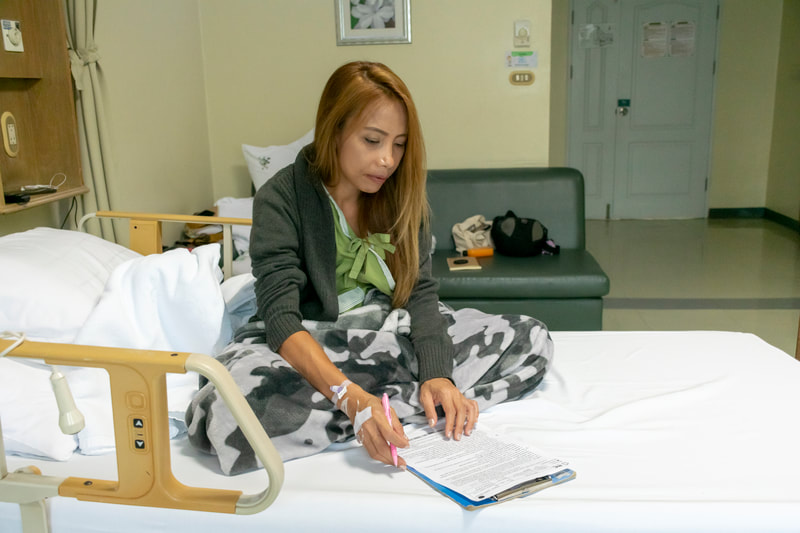
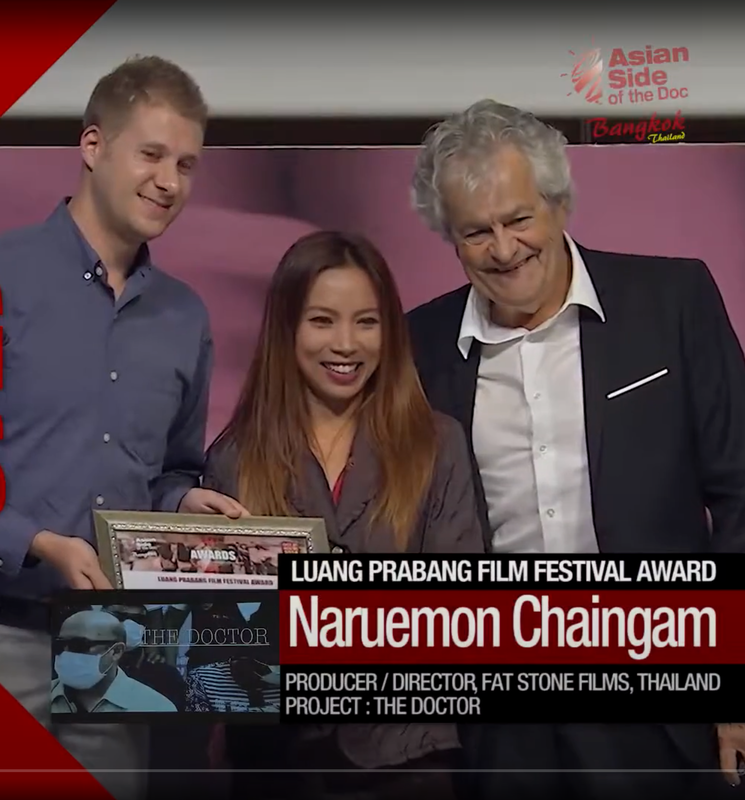
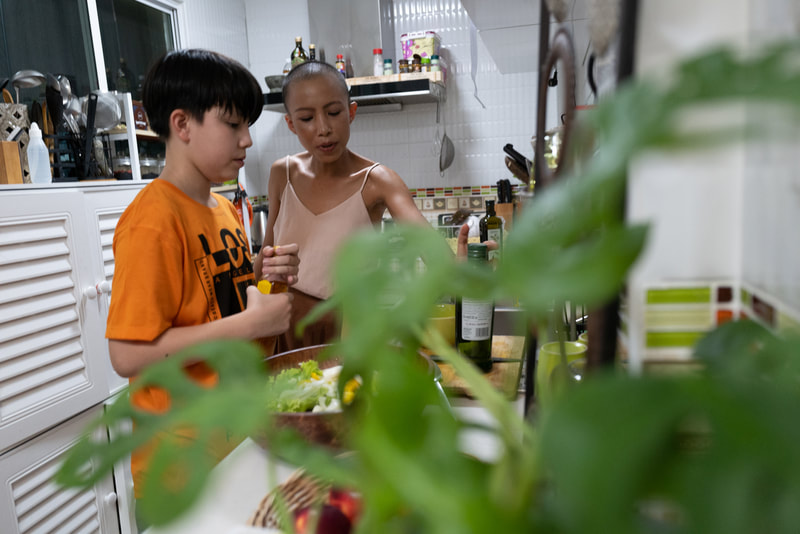
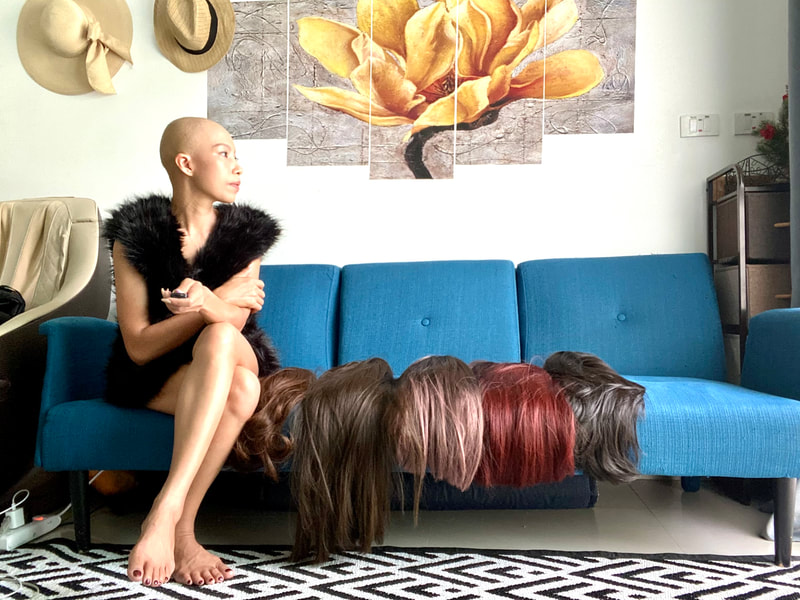
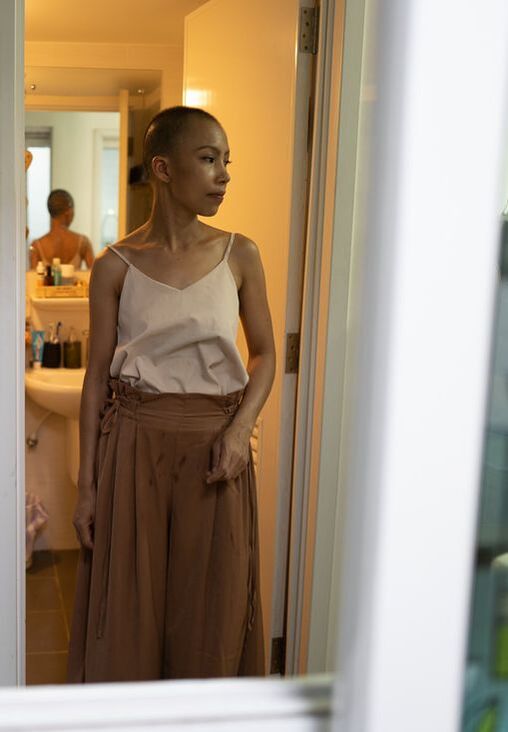
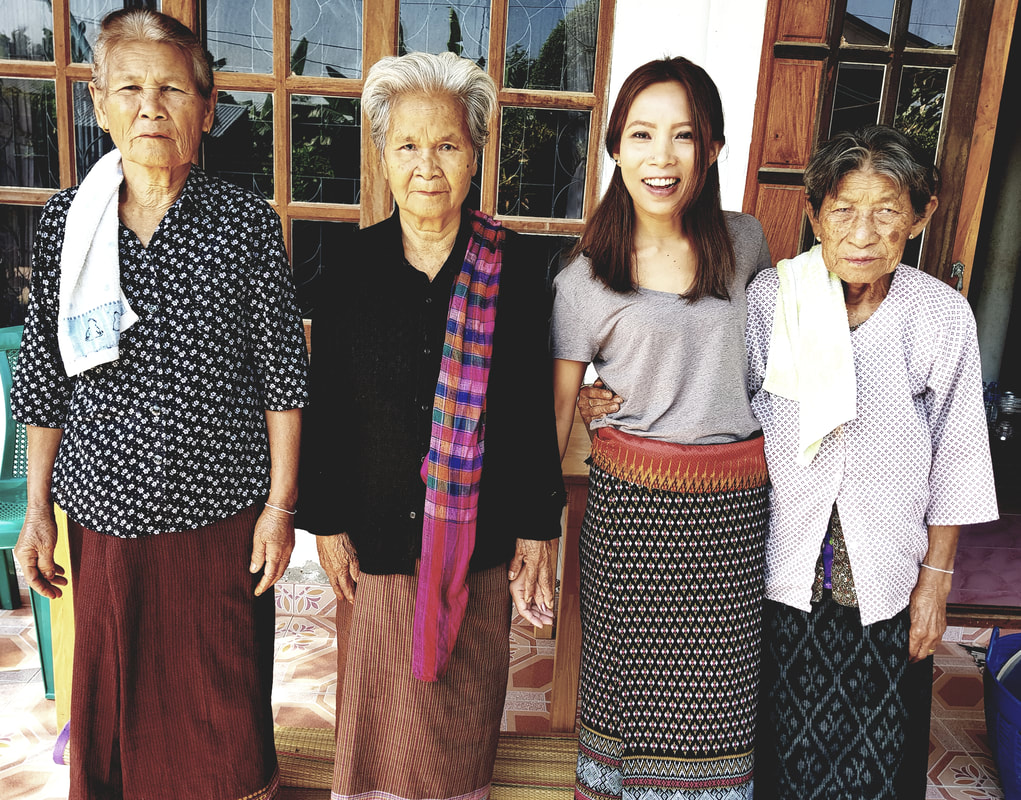
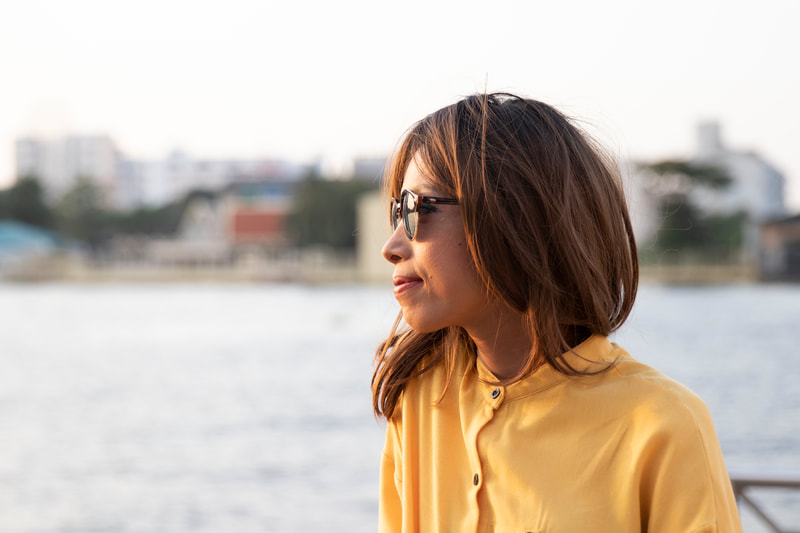
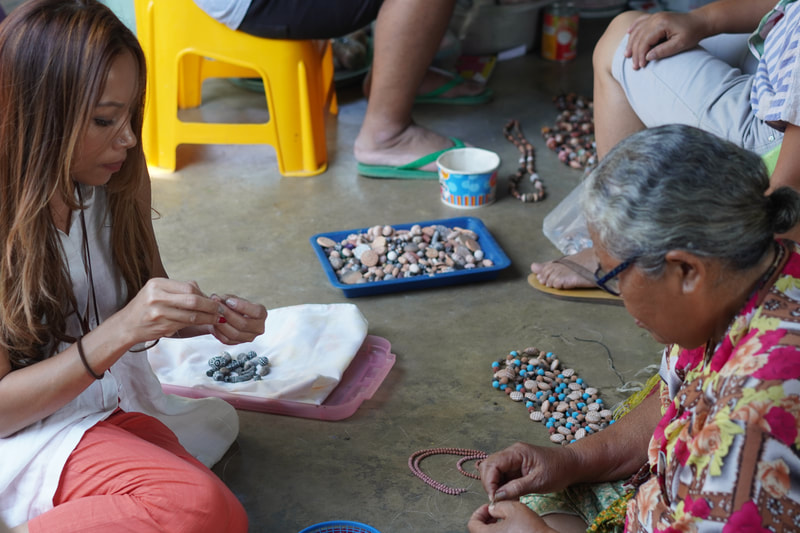
 RSS Feed
RSS Feed
















